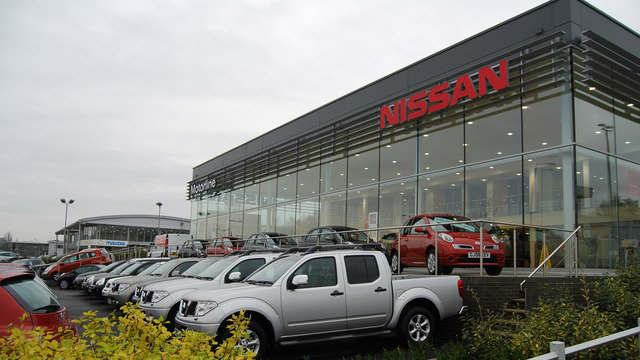Shares in car dealers were hammered by the UK’s Brexit vote and haven’t fully recovered. These stocks now look cheap, but an uncertain outlook is holding back share prices.
In this article I’ll look at today’s trading update from Vertu Motors (LSE: VTU) and ask whether investors should buy into this cheap-looking UK group, or focus their cash on Vertu’s larger and more global peer Inchcape (LSE: INCH).
Strong trading?
Vertu Motors’ share price rose by 3% this morning, after the group said that full-year results are expected to be in line with current expectations. This puts the stock on a forecast P/E of 7.9 and a dividend yield of 2.8%.
These certainly seem attractive figures. Vertu says trading during the first half was “robust,” with “profitability ahead of last year.”
Increasing profit margins is a key challenge for the group. The margins on new cars are very low, but used cars and after-sales are far more profitable. Vertu’s operating margin has risen from 0.6% in 2011, to 1.1% last year. Yet this is still lower than most peers, so further gains should be possible.
The argument for investing today is that several years of strong new car sales have created a reliable stream of profitable after-sales work on cars under warranty. This should support Vertu’s profits even if new private car sales continue to slow.
Vertu also has a strong balance sheet, with plenty of freehold property and net cash. Tangible net assets totalled 38p per share at the end of February.
At 50p, Vertu looks a reasonable buy to me. But I’m not sure if the stock will rise above last year’s peak of 79p in 2017. With new car sales already at record levels, more modest growth seems likely to me.
Is bigger better?
Inchcape has a market value of £3bn, 15 times larger than Vertu, at £193m. However, what’s most interesting about this comparison is that Inchcape’s sales over the last year were only three times greater than those of Vertu.
Inchcape’s market cap is much higher because it’s much more profitable than Vertu with it 1.1% operating margin last year, whereas Inchcape managed 4.5%.
The upshot of this is that Inchcape is expected to report a net profit of £241.3m for 2016, 10 times greater than Vertu’s expected profit of £23.6m.
Inchcape’s profit margins are higher because it operates as an overseas distributor to many car manufacturers, as well as a retailer. During the first half of this year, 73% of Inchcape’s trading profit came from distribution.
The superior profit margins of this business mean that Inchcape has a stronger valuation and offers a higher dividend yield. Here’s how it compares to Vertu based on Reuters’ consensus forecasts for the current year:
|
|
Vertu |
Inchcape |
|
Forecast P/E |
7.9 |
12.7 |
|
Forecast yield |
2.8% |
3.2% |
|
Price/book ratio |
1.0x |
2.2x |
Both Vertu and Inchcape have net cash or minimal debt and are expected to deliver mid-single-digit earnings growth this year. Inchcape’s global diversity could make it a safer buy than Vertu, as it shouldn’t suffer too much from any regional downturns. Further growth seems likely to me over the next couple of years.








